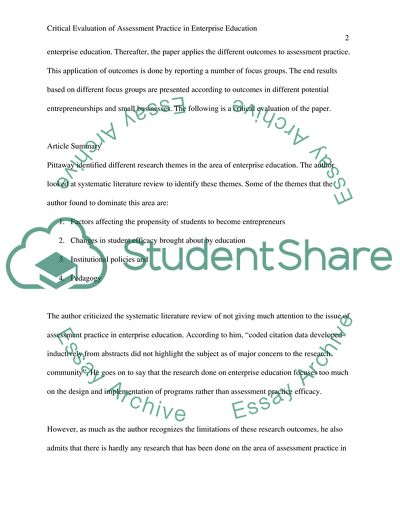Cite this document
(Critical Evaluation of Assessment Practice in Enterprise Education Research Paper, n.d.)
Critical Evaluation of Assessment Practice in Enterprise Education Research Paper. Retrieved from https://studentshare.org/education/1747676-critical-evaluation-of-assessment-practice-in-enterprise-education
Critical Evaluation of Assessment Practice in Enterprise Education Research Paper. Retrieved from https://studentshare.org/education/1747676-critical-evaluation-of-assessment-practice-in-enterprise-education
(Critical Evaluation of Assessment Practice in Enterprise Education Research Paper)
Critical Evaluation of Assessment Practice in Enterprise Education Research Paper. https://studentshare.org/education/1747676-critical-evaluation-of-assessment-practice-in-enterprise-education.
Critical Evaluation of Assessment Practice in Enterprise Education Research Paper. https://studentshare.org/education/1747676-critical-evaluation-of-assessment-practice-in-enterprise-education.
“Critical Evaluation of Assessment Practice in Enterprise Education Research Paper”, n.d. https://studentshare.org/education/1747676-critical-evaluation-of-assessment-practice-in-enterprise-education.


